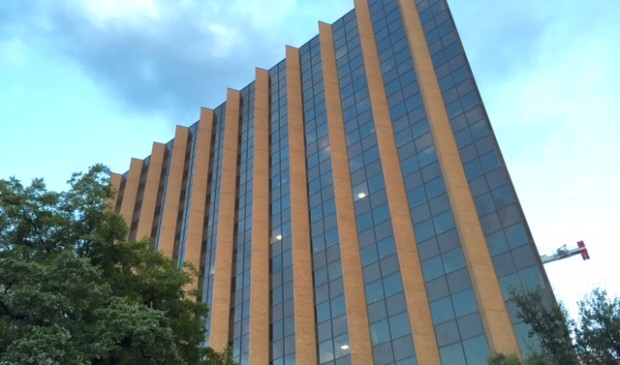Revenue caps loom over discussion of public defender’s office
Wednesday, April 24, 2019 by
Jack Craver Travis County Judge Sarah Eckhardt warmly welcomed a proposal to establish a county public defender’s office, saying it was imperative that Travis County join the vast majority of major urban jurisdictions in providing attorneys to represent criminal defendants who can’t afford to hire one.
“Certainly this is the civil rights issue of our time,” Eckhardt said, in response to a presentation by members of a work group of advocates and legal experts who have crafted an application for a four-year, $19 million grant from the Texas Commission on Indigent Defense to set up a public defender’s office.
Other commissioners, however, expressed concerns about the ongoing cost of establishing a new county entity, particularly in light of new revenue limits on local governments that the state Legislature is expected to approve in the coming weeks.
Last year, Travis County spent roughly $12 million contracting with private defense attorneys to represent indigent defendants.
The grant application proposes that the new office will eventually handle 30 percent of misdemeanor and felony cases, while the rest of cases would continue to be assigned to private attorneys.
The proposal envisions an office with over 70 dedicated staff members, including 38-40 attorneys and paralegals, investigators, social workers and other professionals. The office would cost the county about $9 million a year, roughly half of which would be covered by the grant during the first four years of its existence.
The office will work collaboratively to provide clients a “holistic defense” that encompasses not only legal representation but advocacy to connect clients with other critical services such as substance abuse and mental health treatment, job training or child custody mediation.
Commissioner Gerald Daugherty said he had a hard time contemplating approving money for a new program at a time when the county expects to make deep cuts to existing programs to comply with anticipated revenue caps.
“This is a money issue for me. I don’t have the money,” he said.
Commissioner Brigid Shea similarly expressed concerns about the fiscal implications, which she blamed on a state government “that is literally waging war against urban counties.”
While sympathetic to those concerns, the advocates stressed that a public defender’s office could help save the county money by reducing jail time for defendants. The county spends an average of $65 a day per inmate.
The revenue cap bill being considered in the state House includes a provision that would not count some of the money the county spends on establishing a public defender’s office toward its revenue limit. However, Eckhardt said she was not optimistic that provision would be included in whatever is ultimately passed.
Eckhardt expressed excitement at the prospect of a new “institutional column” in county government dedicated to providing robust legal defense. While the majority of cases will continue to be outsourced to private sector attorneys, the new office will allow the county to compare results between the two systems, she said.
Advocates for the accused argue that the current system, in which attorneys are paid a flat fee to represent defendants, incentivizes lawyers to seek a speedy resolution to a case, rather than the best possible outcome for their client. Improving that system will be part of the overall reform, members of the work group said. One possible solution is to pay attorneys on an hourly rate, at least for the most serious felony cases in which defendants are facing lengthy sentences.
The work group may make modifications to the proposal based on suggestions made by commissioners Tuesday.
Eckhardt and Commissioner Jeff Travillion signaled concern about the composition of the committee tasked with overseeing the public defender’s office. The work group proposed that the four attorneys on the committee should be at least a decade removed from any experience as prosecutors, reasoning that could present a conflict of interest.
Travillion, however, argued that some of the nation’s most high-profile defense attorneys, highlighting the celebrated Johnnie Cochran, started out as prosecutors. If he ever found himself in legal trouble, Travillion said, his first call would be to former District Attorney Gary Cobb, who is now in private practice.
Eckhardt also expressed concern about a provision of the work group’s proposal that stated the public defender’s office would represent clients not only in criminal proceedings but at “collateral” proceedings. She worried that could lead to “scope creep” that would limit the office’s ability to represent a large number of clients. While emphasizing the importance of “holistic defense,” Eckhardt said the public defender’s office should not be taking on the responsibilities of other social service agencies.
The grant deadline is May 10, meaning that the Commissioners Court likely has until its May 7 meeting to approve the grant application.
The Austin Monitor’s work is made possible by donations from the community. Though our reporting covers donors from time to time, we are careful to keep business and editorial efforts separate while maintaining transparency. A complete list of donors is available here, and our code of ethics is explained here.
You're a community leader
And we’re honored you look to us for serious, in-depth news. You know a strong community needs local and dedicated watchdog reporting. We’re here for you and that won’t change. Now will you take the powerful next step and support our nonprofit news organization?










